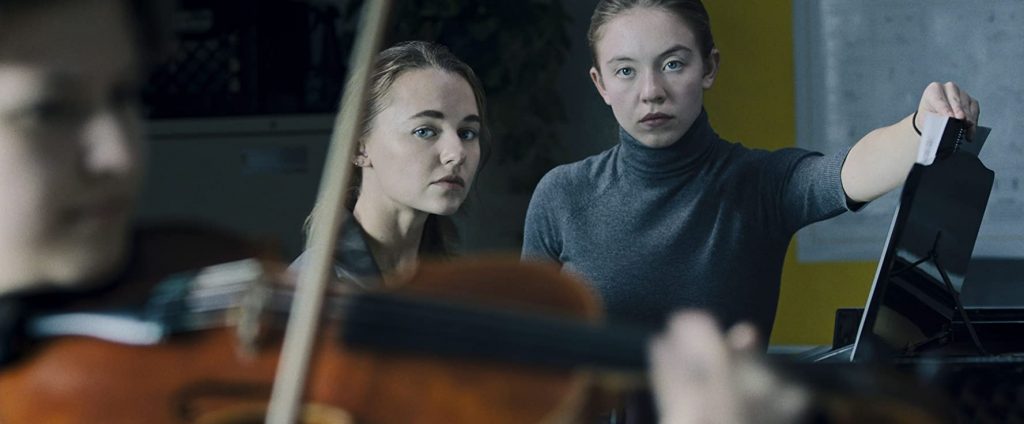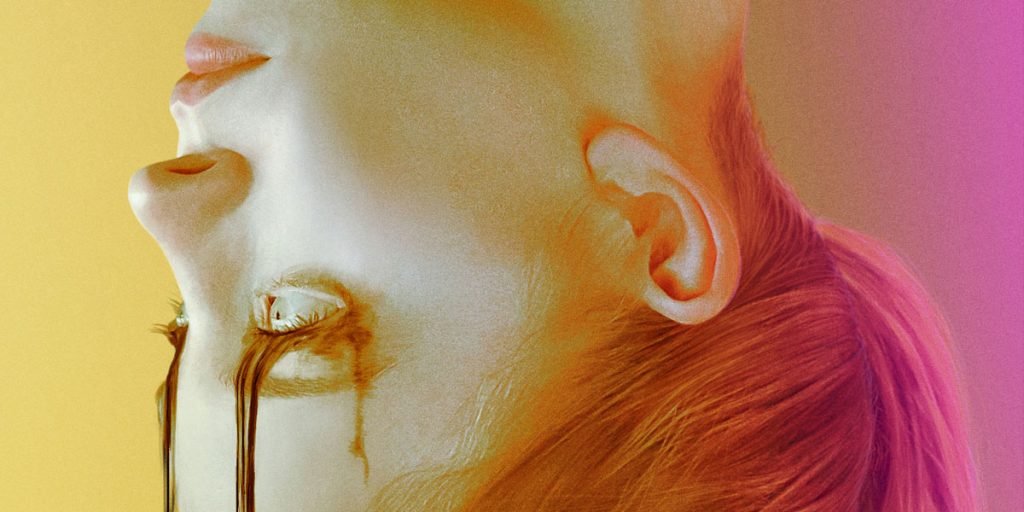Though low on frights, Nocturne is a good addition to the well-traveled “sibling rivalry” trope that boasts strong direction and visuals.
It’s a tale as old as time: two siblings, both alike in dignity, in (what I’m assuming is) fair Southern California, where we lay our scene. From ancient grudge break new mutiny, where civil blood makes civil hands unclean. We’ve all seen the story of the two rival siblings, one being the favorite and the other struggling to catch up. We’ve seen everything from Jane and Blanche Hudson in Whatever Happened to Baby Jane?, Dottie Hinson and Kit Keller in A League of Their Own, Ramses and Moses in The Prince of Egypt, Faramir and Boromir in The Lord of the Rings, Michael and Fredo Corleone in The Godfather Part II, and Scar and Mufasa in The Lion King. Time and again, sibling rivalries have been a goldmine for cinematic drama for decades, as well as in literature and legends for millenia (Thor & Loki, Kane & Abel, and Romulus & Remus all come to mind). With such a robust history, any new film or story to take on the trope must find a way to keep it fresh, or risk being overshadowed by all that came before it.
Nocturne is the most recent film to take a crack at the sibling rivalry trope, this time making it between two musical prodigies studying at a prestigious arts high school. Juliet (Sydney Sweeney, who turns out an excellent performance) has always been in the shadow of her more accomplished sister and fellow pianist Vivian (Madison Iseman). Juliet’s fortunes begin to change, however, when she discovers the mysterious notebook of a recently deceased classmate.
It’s odd for me to have to specify this, but it was refreshing to have a horror movie that actually establishes itself as a horror movie early on, instead of shoehorning in the horror elements in the final act. For some reason, I keep seeing self-proclaimed horror movies that avoid presenting themselves as horror films until after the halfway mark. While I don’t consider Nocturne to be particularly scary, it at least is aware of its genre, effectively uses a good horror atmosphere and aesthetics, and takes the time to remind you that, yes, this is a horror movie, and it’s not afraid to admit it. It’s well-paced with a heavy reliance on atmosphere, and led to an ambiguous ending that will make your palms sweaty.
My favorite part of Nocturne has to be Carmen Cabana’s cinematography: it’s beautiful. I’m a big sucker for long tracking shots, and the film opens with one that uses several excellent silhouettes and tableaus intermingling with a subdued but effective color palette. The color is complemented beautifully by the lighting, and it all works together to quickly set the tone for the rest of the movie. There’s also so much to unpack in the opening shot, and Nocturne fulfills the promise of the opening shot by answering the questions it represents in a satisfying way. These techniques, demonstrated in the opening shot, are mirrored throughout the film, most effectively at the end in a haunting slow zoom-out. The tracking shots also do a good job at layering, peeling away different foreground and midground visual layers to reveal a complete picture.

The soundtrack is also well done and effective, making heavy use of classical pieces reflecting modern sensibilities: lots of minimalism and dissonance. It perfectly encapsulates Juliet’s inner turmoil as her place in the school and in the world becomes unclear, reflecting the dissonance she feels as a modern woman playing old music, and as a sibling struggling to move past her sister’s shadow.
The only real critique I have in terms of the film’s craft is in its editing. There will be times where, in a single long shot, all of the action will be presented in slow motion, and then transition into being sped up. It always seemed less of a stylistic choice, and more of a practical one; it felt like the director was worried the shot was too long, and just sped up the character’s actions to speed things along. I found it distracting and a little silly, and it definitely took me out of the film’s world for a moment.
There is an element of Nocturne on which I’m still forming an opinion, and that’s the film’s attitude towards music. Taking place at an arts high school, the film is packed with discussions of music and art, and delves into why each person decided to get involved in the first place. Now, while I didn’t attend a conservatory, I’ve had both formal university-level music instruction, as well as informarmal self-taught music experience. I’ve considered myself a “serious” musician for well over a decade at this point, and I think I can contribute to Nocturne’s conversation surrounding music.
There’s one line in particular that stuck with me after my viewing, and it came from Henry Cask (Ivan Shaw), one of the teachers at the school. When discussing his own views on music, he says, “Music is a bloodsport.” In a way, this line sums up the thesis of the film: the two sisters, and indeed everyone at the school, competes to show that they are the best at their craft, and that they are the most deserving of prestige and honor, more so than their peers. In the context of the film, the mantra of “music as bloodsport” makes sense and is appropriate to the plot, but as a musician myself, it just never sat right with me.
Look, this is a film review, not an academic paper on musical philosophy, but it’s worth pointing out that none of the students seem to be particularly excited about music for music’s sake. I don’t know anything about director/screenwriter’s music education, but, at least in mine, music was always a source of joy. The other students and I always jumped at the chance to share new artists and songs with each other, and applauded each other when we learned new techniques or finally mastered that song we had been struggling with for weeks. Maybe this is by design, showing how people get so caught up in personal rivalries and competitions that they forget why they began doing something in the first place. Still, I happen to disagree with the idea that “music is a bloodsport”: it’s a celebration of art and life, and one of the greatest creations humans have ever made.
Nocturne is (for the most part) an extremely well-made movie, and I could recommend it based on the merits of its visual component alone. When you add on strong direction, impressive performances from a young cast, and a compelling soundtrack, it becomes the best film I’ve gotten to review so far for the Welcome to Blumhouse series. I may disagree with the philosophies of a fictional teacher, but Nocturne left me excited to see what director Zu Quirke and cinematographer Carmen Cabana do next.
Nocturne and Evil Eye, both part of the Welcome to the Blumhouse horror anthology series, were released on Amazon Prime Video (US) on Tuesday, October 13, 2020, joining the first two instalments of the series, Black Box and The Lie. The remaining four movies are scheduled to premiere in 2021.

